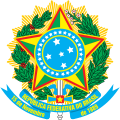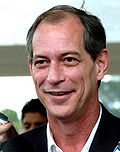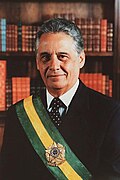4 October 1998 | |||||||||||||||||||||||||||||||||||||||||||||||||||||||||||||||||||||||||||||||||||||||||||||||||||||||||||||||||||
Presidential election | |||||||||||||||||||||||||||||||||||||||||||||||||||||||||||||||||||||||||||||||||||||||||||||||||||||||||||||||||||
| Turnout | 78.51% | ||||||||||||||||||||||||||||||||||||||||||||||||||||||||||||||||||||||||||||||||||||||||||||||||||||||||||||||||||
|---|---|---|---|---|---|---|---|---|---|---|---|---|---|---|---|---|---|---|---|---|---|---|---|---|---|---|---|---|---|---|---|---|---|---|---|---|---|---|---|---|---|---|---|---|---|---|---|---|---|---|---|---|---|---|---|---|---|---|---|---|---|---|---|---|---|---|---|---|---|---|---|---|---|---|---|---|---|---|---|---|---|---|---|---|---|---|---|---|---|---|---|---|---|---|---|---|---|---|---|---|---|---|---|---|---|---|---|---|---|---|---|---|---|---|---|
| |||||||||||||||||||||||||||||||||||||||||||||||||||||||||||||||||||||||||||||||||||||||||||||||||||||||||||||||||||
 Presidential election results by state | |||||||||||||||||||||||||||||||||||||||||||||||||||||||||||||||||||||||||||||||||||||||||||||||||||||||||||||||||||
| |||||||||||||||||||||||||||||||||||||||||||||||||||||||||||||||||||||||||||||||||||||||||||||||||||||||||||||||||||
All 513 seats in the Chamber of Deputies 257 seats needed for a majority | |||||||||||||||||||||||||||||||||||||||||||||||||||||||||||||||||||||||||||||||||||||||||||||||||||||||||||||||||||
This lists parties that won seats. See the complete results below. | |||||||||||||||||||||||||||||||||||||||||||||||||||||||||||||||||||||||||||||||||||||||||||||||||||||||||||||||||||
27 of the 81 seats in the Federal Senate | |||||||||||||||||||||||||||||||||||||||||||||||||||||||||||||||||||||||||||||||||||||||||||||||||||||||||||||||||||
This lists parties that won seats. See the complete results below. | |||||||||||||||||||||||||||||||||||||||||||||||||||||||||||||||||||||||||||||||||||||||||||||||||||||||||||||||||||
| This article is part of a series on the |
| Politics of Brazil |
|---|
 |
General elections were held in Brazil on 4 October 1998 to elect the President, National Congress and state governorships. If no candidate in the presidential election received more than 50% of the vote in the first round, a second-round runoff would have been held on 25 October. The election saw voting machines used for the first time in Brazilian history.
Contents
- Background
- Presidential election
- Candidates
- Results
- President
- Chamber of Deputies
- Senate
- Notes
- References
Elected in 1994 amidst a hyperinflation crisis, President Fernando Henrique Cardoso of the centre-right Brazilian Social Democratic Party (PSDB) prioritized price stability policies during his term. [1] Other notable policies pursued by Cardoso included the declaration of Decree 1775, [2] which allowed for increased commercial interest in indigenous lands, and the privatization of publicly-owned companies. [3] Vice President Marco Maciel of the conservative Liberal Front Party (PFL) served as Cardoso's running mate, as he did in the previous election. [4]
Luiz Inácio Lula da Silva of the Workers' Party (PT), a former labor leader and federal deputy, ran for the presidency for a third time. [5] Lula had previously run for the presidency in both 1989, where he lost to Fernando Collor, and 1994, where he lost to Cardoso. Lula chose Leonel Brizola of the Democratic Labour Party (PDT), a longtime fixture of the Brazilian Left who was a chief competitor of his in 1989, as his running mate.
In addition to Lula, Ciro Gomes, a populist who previously served as Governor of Ceará and as Minister of Finance in the conservative government of President Itamar Franco, mounted his own campaign. [6] Running as a member of the centre-left Popular Socialist Party (PPS), Ciro attempted to present himself as a progressive alternative to Lula.
Cardoso won reelection with an absolute majority in the first round, negating the need for a second round. In doing so, he became the first President of Brazil to be reelected since the fall of the military dictatorship. Four years later, Lula would succeed him after winning the 2002 presidential election, while Ciro would mount a second presidential bid in the same election, where he came in fourth place.























